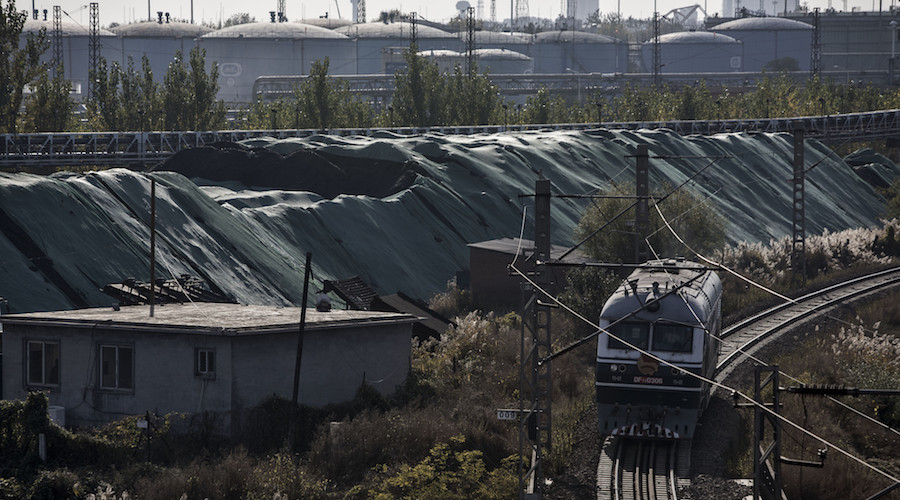China locks down part of its northern hub for coal shipping

The northern port of Qinhuangdao is the latest Chinese commodities hub to get hit by virus-related lockdowns.
The city in Hebei province has locked down its Haigang district, which includes the port, after infections were found in the area, although a spokesperson said the port is operating normally. In the first quarter, Qinhuangdao handled nearly 50 million tons of goods, mostly coal from the interior and metal ore imports. Hebei is China’s biggest steel province and its mills rely on seaborne supplies of iron ore.
The city is chiefly known as a transition point for sending coal from the mining regions of the north to the coastal industrial centers in the south. The price set at the port is an important benchmark for China’s coal market, which is the largest in the world.
While port administrators are working remotely, workers are on site and coal is being transported normally, the spokesperson said. Still, coal flows have drawn particular scrutiny in recent weeks as markets in the south stress over dwindling imports and a resurgent virus that has clogged up transportation of the nation’s mainstay fuel.
Much of the Chinese economy was crippled by an unprecedented power crunch in the fall. Earlier this month, an executive at the China Coal Transportation and Distribution Association said eight coastal provinces, including economic powerhouse Guangdong, are threatened once again by a growing shortfall of the fuel for industry and cooling needs. Miners in the top producing province of Shanxi have since been told to guarantee supplies to the at-risk areas, according to a report.
Earlier this week, Baotou, the biggest city in Inner Mongolia, China’s No. 2 coal region, was locked down. Baotou is also a crucial hub for the production of rare earths.
(By Jason Rogers)
{{ commodity.name }}
{{ post.title }}
{{ post.date }}




Comments